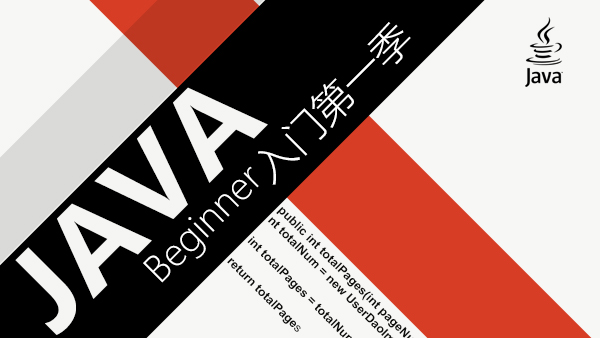作者: 一字马胡
转载标志 【2017-11-14】
更新日志
| 日期 | 更新内容 | 备注 |
|---|---|---|
| 2017-11-14 | 新建文章 | 初版 |
导入
ManagementFactory是一个为我们提供各种获取JVM信息的工厂类,使用ManagementFactory可以获取大量的运行时JVM信息,比如JVM堆的使用情况,以及GC情况,线程信息等,通过这些数据项我们可以了解正在运行的JVM的情况,以便我们可以做出相应的调整。本文将基于ManagementFactory,介绍如何通过ManagementFactory获取一些运行时的JVM信息,下面首先展示了ManagementFactory的类图,可以看出它提供了大量的工厂方法,使得我们可以通过调用这些方法来获取运行时的相关Bean,通过这些Bean就可以获取到我们想要的数据:
使用ManagementFactory
上文中展示的ManagementFactory类图直观的说明了ManagementFactory提供的一些方法,可以看出我们可以获取的内容很多,下面将挑选几个具有代表性的MXBean来作为使用示例。
线程:ThreadMXBean
首先,可以通过下面的方式来获取一个ThreadMXBean:
ThreadMXBean threadBean = ManagementFactory.getThreadMXBean();
下面的图片展示了ThreadMXBean支持的查询方法:
下面的代码展示了ThreadMXBean的使用方法,通过ThreadMXBean提供的方法,我们可以获取详细的运行时JVM内的线程信息:
private static Map<String, Number> collectThreadInfo() { final ThreadMXBean threadBean = ManagementFactory.getThreadMXBean();
Map<String, Number> map = new LinkedHashMap<String, Number>();
map.put("jvm.thread.count", threadBean.getThreadCount());
map.put("jvm.thread.daemon.count", threadBean.getDaemonThreadCount());
map.put("jvm.thread.totalstarted.count", threadBean.getTotalStartedThreadCount());
ThreadInfo[] threadInfos = threadBean.getThreadInfo(threadBean.getAllThreadIds()); int newThreadCount = 0; int runnableThreadCount = 0; int blockedThreadCount = 0; int waitThreadCount = 0; int timeWaitThreadCount = 0; int terminatedThreadCount = 0; if (threadInfos != null) { for (ThreadInfo threadInfo : threadInfos) { if (threadInfo != null) { switch (threadInfo.getThreadState()) { case NEW:
newThreadCount++; break; case RUNNABLE:
runnableThreadCount++; break; case BLOCKED:
blockedThreadCount++; break; case WAITING:
waitThreadCount++; break; case TIMED_WAITING:
timeWaitThreadCount++; break; case TERMINATED:
terminatedThreadCount++; break; default: break;
}
} else { /*
* If a thread of a given ID is not alive or does not exist,
* the corresponding element in the returned array will,
* contain null,because is mut exist ,so the thread is terminated
*/
terminatedThreadCount++;
}
}
}
map.put("jvm.thread.new.count", newThreadCount);
map.put("jvm.thread.runnable.count", runnableThreadCount);
map.put("jvm.thread.blocked.count", blockedThreadCount);
map.put("jvm.thread.waiting.count", waitThreadCount);
map.put("jvm.thread.time_waiting.count", timeWaitThreadCount);
map.put("jvm.thread.terminated.count", terminatedThreadCount); long[] ids = threadBean.findDeadlockedThreads();
map.put("jvm.thread.deadlock.count", ids == null ? 0 : ids.length); return map;
}使用上面的代码可以获取当前JVM内的线程数量,并且可以计算出每种状态下的线程数量,更多数据可以参考上面展示的ThreadMXBean提供查询接口图。
内存相关MxBean
关于JVM内存相关的数据就比较丰富了,你可以参考文章浅谈JVM中的垃圾回收来初步了解JVM的内存模型,之后你应该也可以根据该文章了解到HotSpot JVM的实现中的内存模型,阅读完该文章之后,就应该知道年轻代、老年代、永久代等相关概念,下面的类是获取这些内存信息的根据类,其中包含了详细的JVM运行时内存信息,甚至包括了堆外内存信息。
class MemoryInformation { // usedMemory 是heap使用内存 (eden+survivor+old)
private final long m_usedMemory; // maxMemory 是heap最大内存
private final long m_maxMemory; // usedOldGen "Old Gen"使用内存
private final long m_usedOldGen; // maxOldGen "Old Gen"最大内存
private final long m_maxOldGen; // usedPermGen "Perm Gen"使用内存
private final long m_usedPermGen; // maxPermGen "Perm Gen"最大内存
private final long m_maxPermGen; // usedEdenSpace "Eden Space"使用内存
private final long m_usedEdenSpace; // maxEdenSpace "Eden Space"最大内存
private final long m_maxEdenSpace; // usedSurvivorSpace "Survivor Space"使用内存
private final long m_usedSurvivorSpace; // maxSurvivorSpace "Survivor Space"最大内存
private final long m_maxSurvivorSpace; private final long m_usedNonHeapMemory; private final long m_maxNonHeapMemory; private MBeanServer m_mbeanServer = ManagementFactory.getPlatformMBeanServer(); private static final String DIRECT_BUFFER_MBEAN = "java.nio:type=BufferPool,name=direct"; private static final String MAPPED_BUFFER_MBEAN = "java.nio:type=BufferPool,name=mapped"; public MemoryInformation() {
m_usedMemory = Runtime.getRuntime().totalMemory() - Runtime.getRuntime().freeMemory();
m_maxMemory = Runtime.getRuntime().maxMemory(); final MemoryPoolMXBean permGenMemoryPool = getPermGenMemoryPool(); if (permGenMemoryPool != null) { final MemoryUsage usage = permGenMemoryPool.getUsage();
m_usedPermGen = usage.getUsed();
m_maxPermGen = usage.getMax();
} else {
m_usedPermGen = 0;
m_maxPermGen = 0;
} final MemoryPoolMXBean oldGenMemoryPool = getOldGenMemoryPool(); if (oldGenMemoryPool != null) { final MemoryUsage usage = oldGenMemoryPool.getUsage();
m_usedOldGen = usage.getUsed();
m_maxOldGen = usage.getMax();
} else {
m_usedOldGen = 0;
m_maxOldGen = 0;
} final MemoryPoolMXBean edenSpaceMemoryPool = getEdenSpacePool(); if (edenSpaceMemoryPool != null) { final MemoryUsage usage = edenSpaceMemoryPool.getUsage();
m_usedEdenSpace = usage.getUsed();
m_maxEdenSpace = usage.getMax();
} else {
m_usedEdenSpace = 0;
m_maxEdenSpace = 0;
} final MemoryPoolMXBean survivorSpacePool = getSurvivorSpaceMemoryPool(); if (survivorSpacePool != null) { final MemoryUsage usage = survivorSpacePool.getUsage();
m_usedSurvivorSpace = usage.getUsed();
m_maxSurvivorSpace = usage.getMax();
} else {
m_usedSurvivorSpace = 0;
m_maxSurvivorSpace = 0;
} final MemoryUsage nonHeapMemoryUsage = ManagementFactory.getMemoryMXBean().getNonHeapMemoryUsage();
m_usedNonHeapMemory = nonHeapMemoryUsage.getUsed();
m_maxNonHeapMemory = nonHeapMemoryUsage.getMax();
} public long getMaxEdenSpace() { return m_maxEdenSpace;
} public long getMaxMemory() { return m_maxMemory;
} public long getMaxNonHeapMemory() { return m_maxNonHeapMemory;
} public long getMaxOldGen() { return m_maxOldGen;
} public long getMaxPermGen() { return m_maxPermGen;
} public long getMaxSurvivorSpace() { return m_maxSurvivorSpace;
} private MemoryPoolMXBean getEdenSpacePool() { for (final MemoryPoolMXBean memoryPool : ManagementFactory.getMemoryPoolMXBeans()) { if (memoryPool.getName().endsWith("Eden Space")) { return memoryPool;
}
} return null;
} private MemoryPoolMXBean getOldGenMemoryPool() { for (final MemoryPoolMXBean memoryPool : ManagementFactory.getMemoryPoolMXBeans()) { if (memoryPool.getName().endsWith("Old Gen")) { return memoryPool;
}
} return null;
} private MemoryPoolMXBean getPermGenMemoryPool() { for (final MemoryPoolMXBean memoryPool : ManagementFactory.getMemoryPoolMXBeans()) { if (memoryPool.getName().endsWith("Perm Gen")) { return memoryPool;
}
} return null;
} private MemoryPoolMXBean getSurvivorSpaceMemoryPool() { for (final MemoryPoolMXBean memoryPool : ManagementFactory.getMemoryPoolMXBeans()) { if (memoryPool.getName().endsWith("Survivor Space")) { return memoryPool;
}
} return null;
} public long getUsedDirectBufferSize() { long directBufferSize = 0; try {
ObjectName directPool = new ObjectName(DIRECT_BUFFER_MBEAN);
directBufferSize = (Long) m_mbeanServer.getAttribute(directPool, "MemoryUsed");
} catch (Exception e) {
e.printStackTrace();
} return directBufferSize;
} public long getUsedEdenSpace() { return m_usedEdenSpace;
} public double getUsedEdenSpacePercentage() { if (m_usedEdenSpace > 0 && m_maxEdenSpace > 0) { return 100d * m_usedEdenSpace / m_maxEdenSpace;
} return 0d;
} public long getUsedMappedSize() { long mappedBufferSize = 0; try {
ObjectName directPool = new ObjectName(MAPPED_BUFFER_MBEAN);
mappedBufferSize = (Long) m_mbeanServer.getAttribute(directPool, "MemoryUsed");
} catch (Exception e) {
e.printStackTrace();
} return mappedBufferSize;
} public long getUsedMemory() { return m_usedMemory;
} public double getUsedMemoryPercentage() { return 100d * m_usedMemory / m_maxMemory;
} public long getUsedNonHeapMemory() { return m_usedNonHeapMemory;
} public double getUsedNonHeapPercentage() { if (m_usedNonHeapMemory > 0 && m_maxNonHeapMemory > 0) { return 100d * m_usedNonHeapMemory / m_maxNonHeapMemory;
} return 0d;
} public long getUsedOldGen() { return m_usedOldGen;
} public double getUsedOldGenPercentage() { if (m_usedOldGen > 0 && m_maxOldGen > 0) { return 100d * m_usedOldGen / m_maxOldGen;
} return 0d;
} public long getUsedPermGen() { return m_usedPermGen;
} public double getUsedPermGenPercentage() { if (m_usedPermGen > 0 && m_maxPermGen > 0) { return 100d * m_usedPermGen / m_maxPermGen;
} return 0d;
} public long getUsedSurvivorSpace() { return m_usedSurvivorSpace;
} public double getUsedSurvivorSpacePercentage() { if (m_usedSurvivorSpace > 0 && m_maxSurvivorSpace > 0) { return 100d * m_usedSurvivorSpace / m_maxSurvivorSpace;
} return 0d;
} @Override
public String toString() { return getClass().getSimpleName() +
"[usedMemory=" + getUsedMemory() +
", maxMemory=" + getMaxMemory() + ']';
}
}虽然代码较多,但是都是可以直接运行的,参考价值非常大,如果在工作或者其他地方需要获取这些信息,可以直接参考就可以了。
GC:GarbageCollectorMXBean
同样,你应该首先阅读文章浅谈JVM中的垃圾回收来了解关于GC的一些基础内容,并且知道有哪些GC,以及设置参数,关于JVM的参数设置这部分内容,将会新建一个【JVM参数解析系列】,下面的代码可以获取关于JVM运行时GC相关的数据信息,在统计GC相关信息的时候使用了GarbageCollectorMXBean:
class GarbageCollectorInfo {
private long m_lastGcCount = 0; private long m_lastGcTime = 0; private long m_lastFullgcTime = 0; private long m_lastFullgcCount = 0; private long m_lastYounggcTime = 0; private long m_lastYounggcCount = 0;
public long getM_lastGcCount() { return this.m_lastGcCount;
}
public long getM_lastGcTime() { return this.m_lastGcTime;
}
public long getM_lastFullgcTime() { return this.m_lastFullgcTime;
}
public long getM_lastFullgcCount() { return this.m_lastFullgcCount;
}
public long getM_lastYounggcTime() { return this.m_lastYounggcTime;
}
public long getM_lastYounggcCount() { return this.m_lastYounggcCount;
} private Set<String> younggcAlgorithm = new LinkedHashSet<String>() {
{
add("Copy");
add("ParNew");
add("PS Scavenge");
add("G1 Young Generation");
}
}; private Set<String> oldgcAlgorithm = new LinkedHashSet<String>() {
{
add("MarkSweepCompact");
add("PS MarkSweep");
add("ConcurrentMarkSweep");
add("G1 Old Generation");
}
}; private Map<String, Number> collectGC() { long gcCount = 0; long gcTime = 0; long oldGCount = 0; long oldGcTime = 0; long youngGcCount = 0; long youngGcTime = 0;
Map<String, Number> map = new LinkedHashMap<>(); for (final GarbageCollectorMXBean garbageCollector :
ManagementFactory.getGarbageCollectorMXBeans()) {
gcTime += garbageCollector.getCollectionTime();
gcCount += garbageCollector.getCollectionCount();
String gcAlgorithm = garbageCollector.getName(); if (younggcAlgorithm.contains(gcAlgorithm)) {
youngGcTime += garbageCollector.getCollectionTime();
youngGcCount += garbageCollector.getCollectionCount();
} else if (oldgcAlgorithm.contains(gcAlgorithm)) {
oldGcTime += garbageCollector.getCollectionTime();
oldGCount += garbageCollector.getCollectionCount();
}
}
//
// GC实时统计信息
//
map.put("jvm.gc.count", gcCount - m_lastGcCount);
map.put("jvm.gc.time", gcTime - m_lastGcTime); final long fullGcCount = oldGCount - m_lastFullgcCount;
map.put("jvm.fullgc.count", fullGcCount);
map.put("jvm.fullgc.time", oldGcTime - m_lastFullgcTime);
map.put("jvm.younggc.count", youngGcCount - m_lastYounggcCount);
map.put("jvm.younggc.time", youngGcTime - m_lastYounggcTime); if (youngGcCount > m_lastYounggcCount) {
map.put("jvm.younggc.meantime",
(youngGcTime - m_lastYounggcTime) / (youngGcCount - m_lastYounggcCount));
} else {
map.put("jvm.younggc.meantime", 0);
} //
// GC增量统计信息
//
m_lastGcCount = gcCount;
m_lastGcTime = gcTime;
m_lastYounggcCount = youngGcCount;
m_lastYounggcTime = youngGcTime;
m_lastFullgcCount = oldGCount;
m_lastFullgcTime = oldGcTime; return map;
}
}类加载器:ClassLoadingMXBean
使用ClassLoadingMXBean可以获取当前JVM的类加载信息,下面的代码展示了ClassLoadingMXBean的使用方法:
private static Map<String, Number> collectClassLoadingInfo() {
ClassLoadingMXBean classLoadingMXBean = ManagementFactory.getClassLoadingMXBean();
Map<String, Number> map = new LinkedHashMap<String, Number>();
map.put("jvm.classloading.loaded.count", classLoadingMXBean.getLoadedClassCount());
map.put("jvm.classloading.totalloaded.count", classLoadingMXBean.getTotalLoadedClassCount());
map.put("jvm.classloading.unloaded.count", classLoadingMXBean.getUnloadedClassCount()); return map;
}结语
本文包含了大量的代码,但是这些代码都是可执行的代码,执行这些代码可以快速直观的获取到JVM运行时的一些关键数据,根据这些数据我们就可以初步了解正在运行的JVM的一些信息,有时候就可以根据这些信息来优化我们的项目,比如是否有太多的线程在空闲状态,或者是否内存占用量很大,或者是否频繁发生Full GC(以此来调整我们的JVM启动参数)。这些数据对于维护和优化项目代码都是非常有价值的,本文试图分析与总结java的ManagementFactory的用法,从文章开篇的图片可以看出ManagementFactory提供了非常丰富的获取JVM运行时数据接口,而本文仅仅挑选了其中比较有代表性的MXBean,关于其他的MXBean的相关用法可以直接参考jdk源码,本文没有涉及到的那些MXBean将在未来合适的时候补充进来,或者在其他的文章中进行分析总结。

 随时随地看视频
随时随地看视频



